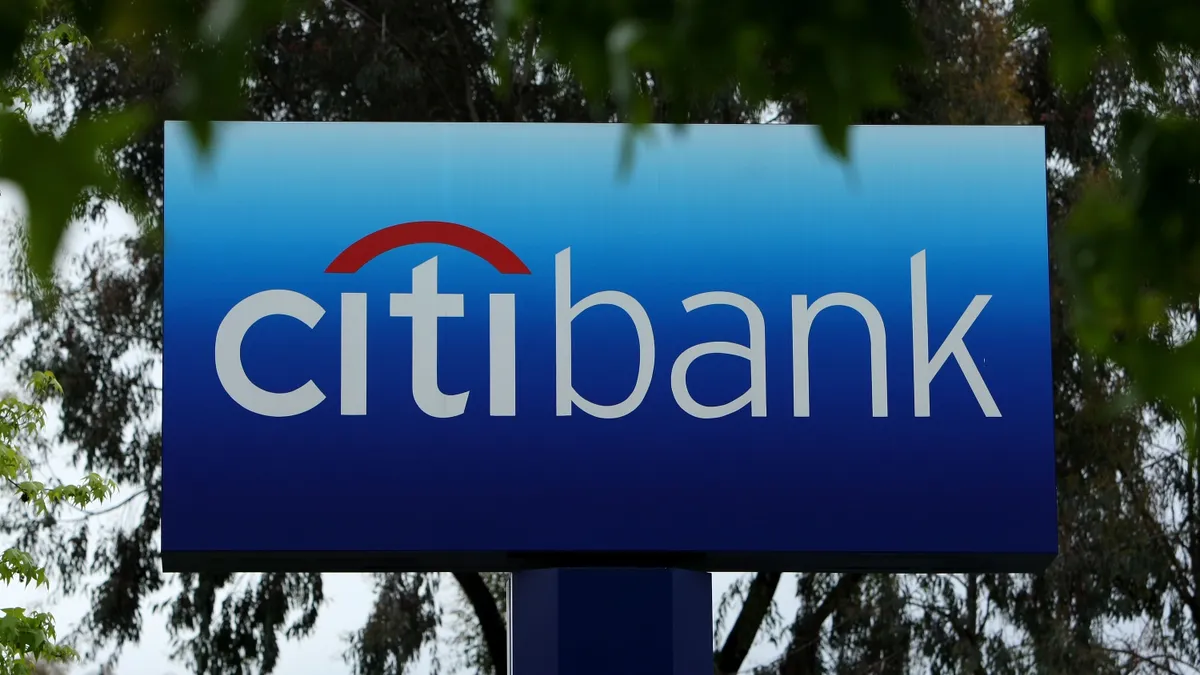Few banks may envy Citi’s position with regard to several narratives: its U.S.-leading Russia exposure, the long-running revamp of its risk management processes and tech, its plan to retreat from 14 retail markets, or the threat of lost business over at least one social stance.
But attorneys general in 17 states and the District of Columbia are pointing to it as a model citizen in the banking industry for its overdraft fee policy.
"Your peer firm, Citi, rightly concluded" that "no person should ever be charged $35 for a $5 cup of coffee," the attorneys general wrote in letters this week to the CEOs of JPMorgan Chase, Bank of America, Wells Fargo and U.S. Bank, asking each to "commit immediately" to eliminating overdraft and similar fees "on the same timetable as Citi."
Citi in February said it would eliminate overdraft, returned item and overdraft protection fees by this summer. However, each of the banks targeted by the attorneys general curbed their reliance on the fees by some measure in the three months leading to Citi’s announcement.
JPMorgan Chase in December said it would give customers an additional business day — beginning this year — to restore overdrawn accounts to $50 in the red or less before a fee is charged. The bank also said it would give users access to direct-deposit paychecks two days early.
U.S. Bank in January said it plans, by June, to increase — to $50 from $5 — the amount an account can be overdrawn before a fee is charged. The bank’s CEO, Andy Cecere, told Senate Banking Committee Chair Sherrod Brown, D-OH, in a letter last week that it would also institute a 24-hour grace period to let customers replenish their balances before a fee is charged, according to American Banker.
Bank of America, also in January, said it would cut its overdraft fee from $35 to $10 beginning in May and would eliminate non-sufficient fund (NSF) fees and certain transfer fees. Wells Fargo — on the same day — said it would eliminate NSF fees and transfer fees for certain customers in the first quarter of 2022. It added that it would launch a 24-hour grace period in the third quarter.
Attorneys general from New York, California, Connecticut, Delaware, Hawaii, Illinois, Iowa, Maryland, Massachusetts, Michigan, Minnesota, Nevada, New Jersey, North Carolina, Oregon, Pennsylvania and Washington state, in addition to D.C., signed on to the letters to JPMorgan, Wells Fargo and U.S. Bank. North Carolina Attorney General Josh Stein did not sign the letter addressed to Bank of America, which is based in Charlotte.
The states’ top lawyers called ending overdraft and other fees a "vital" step "toward creating a fairer and more inclusive consumer financial system," noting that the Center for Responsible Lending found "the overwhelming majority" of the more than $11 billion in fees charged in 2019 were levied against "the most vulnerable consumers with the lowest average account balances," including — disproportionately — people of color.
Consumer Bankers Association CEO Richard Hunt asserted, however, that recent changes to banks’ overdraft policies have spurred a drop in overdraft usage, according to a statement seen by American Banker, adding that many users "knowingly" overdraw.
"America’s leading banks have always listened to their customers and are taking proactive steps to help them avoid unintended fees while protecting their access to a much-needed emergency safety net," Hunt said in the statement.
Citi, of course, is not alone in dispatching with overdraft fees. Capital One announced in December it would eliminate them. Ally Bank did so in June 2021.
Neither are the attorneys general alone in their anti-overdraft advocacy. The fees became a point of contention last May — particularly in a tense exchange between Sen. Elizabeth Warren, D-MA, and JPMorgan Chase CEO Jamie Dimon — during a hearing on Capitol Hill. The Consumer Financial Protection Bureau (CFPB) in January solicited input from consumers as part of a crusade against "junk fees." The initiative came little more than a month after CFPB Director Rohit Chopra said the agency would crack down on financial institutions that are "hooked" on overdraft charges.











